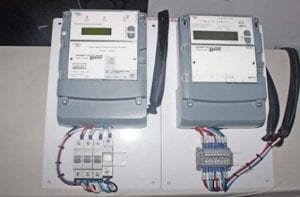The roll-out of smart meters by City Power, to mitigate load-shedding, improve consumption efficiency, achieve meter-reading accuracy, reduce meter-reading costs and regulate consumption, is gathering speed.
According to the City of Johannesburg more than 60 000 smart meters, also known as Advanced Metering Infrastructure (AMI) units, have already been installed in areas where domestic customers consume 1 000 KWH and above a month. The target is to install 70 000 smart meters by the beginning of June this year and 150 000 by the end of September at no cost to customers. Areas in which smart meters have already been installed include Ruimsig, Hyde Park, Randburg, Radiokop, Grobblerpark, Greenstone, Bryanston, Robertsham, Eagle Canyon, Westcliff, Parkhurst, Parkmore and Parkwood.Load limiting
Recently, Executive Mayor Councillor Parks Tau announced at the height of intermittent power outages the introduction of an innovative system that would use smart meters to mitigate the impact of load shedding and help keep the lights on. Explaining at the time how the “load limiting” system would work, Mayor Tau said residents in households where smart meters had been installed would receive an SMS on their smartphones advising them to reduce power consumption at a particular time. “It will be up to you to switch off those electrical appliances that you don’t need. If you ignore the signal, your power will trip for 30 seconds and will switch on again. If you continue ignoring the warning signal, the power will switch off completely,” he said.The power will remain switched off until the load shedding period has lapsed.
It is estimated that the City could save us much as 775MW if all the 335 000 households with smart meters were to apply the system.







